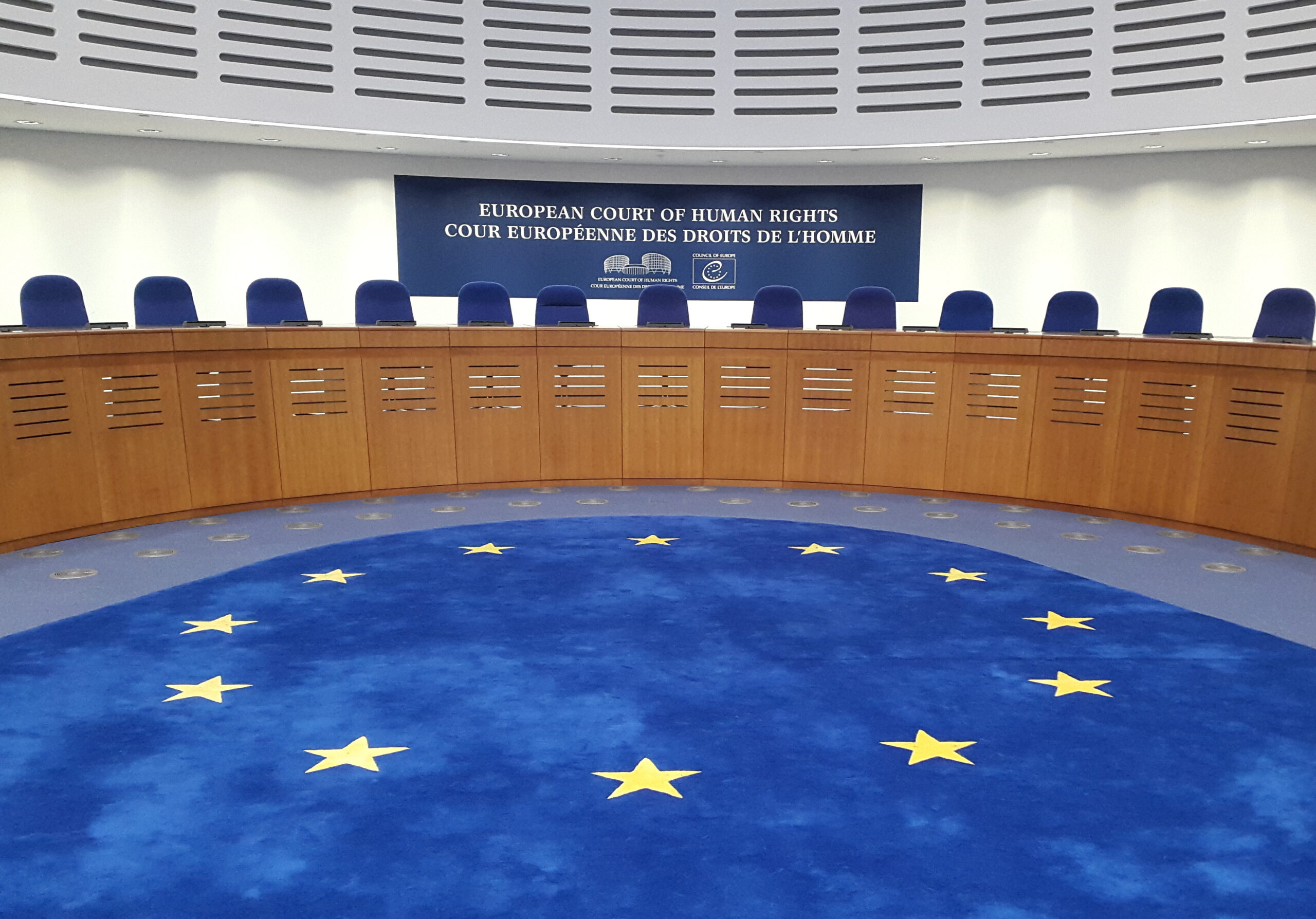On 30 September 2024, the International Commission of Jurists (ICJ) and its partners intervened before the Grand Chamber of the European Court of Human Rights (ECtHR) in two cases related to the treatment of asylum seekers at the European Union’s borders with Belarus. These cases, C.O.C.G. v. Lithuania and R.A. v. Poland, concern alleged pushbacks, collective expulsion, ill-treatment and arbitrary detention at the borders between Belarus and the EU Member States. The Chamber, which initially handled the cases, relinquished its jurisdiction in favour of the Grand Chamber.
The applicants in C.O.C.G. v. Lithuania are four Cuban nationals, who submit that Lithuanian border guards repeatedly forced them back across the Belarus-Lithuania border at gunpoint, denying them an opportunity to submit asylum applications. On one occasion, the applicants were pushed back despite an interim measure granted by the Court, ordering the Lithuanian Government not to remove them from its territory. After re-entering Lithuania, the applicants were detained at different reception facilities for aliens, allegedly without individual assessment or adequate procedural safeguards.
In R.A. v. Poland, 32 Afghan nationals were stranded for several months in a makeshift camp at the Belarus-Poland border, enduring deplorable humanitarian and sanitary conditions. The applicants claim they were pushed back by Polish border guards, without any consideration of their asylum applications.
In their submissions, the ICJ and its partners focused primarily on the application of Articles 3 and 5 of the European Convention on Human Rights (ECHR), and on Article 4 of the Fourth Additional Protocol to the Convention. In particular, the interventions highlighted the absolute and non-derogable nature of the prohibition of refoulement (the prohibition of transferring or removing individuals from a State’s territory or jurisdiction when there are substantial grounds for believing that the person would be at risk of irreparable harm), the central importance of the prohibition of collective expulsion and the right to access asylum procedures. The submissions also considered EU and international law and standards on these issues, particularly concerning the deprivation of liberty in migration contexts.
The key points of the interventions are as follows:
- The interveners submit that the non–refoulement principle requires States to examine, proprio motu, the situation the applicants will encounter in the envisaged removal country, irrespective of whether they had an opportunity to raise concerns and whether the destination is a third country or a country of origin. Where the person is returned or sent to a third country, the authorities are precluded from operating on the basis of generalized assumptions, and must, instead, examine the quality and functioning of the asylum and reception system in practice, including reception conditions, quality of procedures, and guarantees against ill-treatment upon return to such country and against onward refoulement. Domestic legislation and/or practice precluding the authorities of the removing State from carrying out such an examination and preventing asylum seekers from making applications for international protection will violate Article 3 of the ECHR. Migratory pressure, potential national security concerns, the behaviour of third States, or the Contracting Party’s capacity constraints, cannot justify migration management allowing for derogation from non-derogable rights under the Convention.
- Collective expulsion of non-nationals is prohibited under international law. This prohibition is present in all major human rights treaties and is a rule of customary international law, making it binding on all States. Moreover, the UN Human Rights Committee has clarified that, where non-derogable rights and absolute prohibitions are concerned, any procedural safeguards that aim to guarantee such rights and obligations must be observed on equally absolute terms. Therefore, insofar as a measure of collective expulsion is linked to the non-derogable prohibition of refoulement, States are not able to derogate from the obligation to ensure procedures that allow individuals to submit reasons against their removal. Where the State has not demonstrated that it has provided genuine and effective means of legal entry and that any failure to conduct an individualised assessment is due to the applicant’s deliberate and culpable actions causing a clearly disruptive or unsafe situation, no exceptions to the prohibition of collection expulsion can be invoked.
- The interveners emphasize that the EU asylum acquis and fundamental rights ensure effective access to asylum procedures for all who may wish to apply for international protection, as specified in the Asylum Procedures Directive. The Directive guarantees the right to an effective remedy against any asylum decision, including at borders and transit zones. (…) Emergency measures adopted at the domestic level that hinder access to international protection procedures are in breach of the Charter and secondary EU law, as no derogation from the right to apply for asylum exists.
- The interveners submit that under Article 5 ECHR, detention must be lawful, free from arbitrariness and comply with a provision, prescribed by law both substantively and in procedure. Detention, as a last resort, is permissible only after an individualized assessment determines that no less severe measures are available and must not be based solely on the fact that an individual has made an application for asylum. Effective exercise of the right to challenge detention requires prompt and adequate information about the reasons, access to legal aid and competent representation. The lack of legal assistance, whether in law or practice, should be considered in assessing compliance with Article 5(4) ECHR regarding judicial review.
The interveners in C.O.C.G. v. Lithuania are the ICJ, the AIRE Centre, the Dutch Council for Refugees, the European Council on Refugees and Exiles (ECRE), and the International Refugee Assistance Project (IRAP).
The interveners in R.A. v. Poland are the ICJ, the AIRE Centre, the Dutch Council for Refugees, and IRAP.
Read the full interventions here: C.O.C.G. v. Lithuania and R.A. v. Poland





